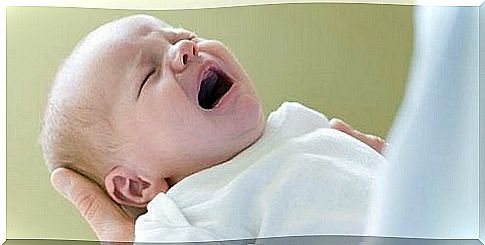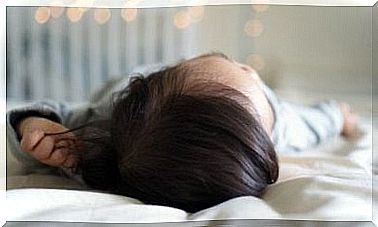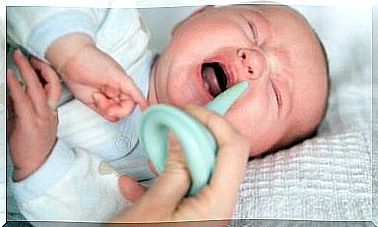Cranio-sacral Therapy: Benefits And Contraindications

Cranio-sacral therapy may be beneficial for premature babies or babies who experienced difficulties during birth. In this article, we share with you the benefits and contraindications of cranio-sacral therapy.
Cranio-sacral therapy is about stimulation and primary respiratory movement support.
This therapy takes the whole body into consideration and it can be performed from the embryonic stage. The perfect time to receive cranio-sacral treatment is 48 hours after birth.
How is cranio-sacral therapy performed?
Cerebral spinal pulse is considered to be one of the most basic health manifestations in babies. Proper functioning of the nervous system and the rest of the body’s organs depends on this important pulse.
Its rhythm can be regulated through gentle massages on the head, neck and back. This is where cranio-sacral therapy comes in.
To perform this therapy, the little one should be placed in its mother’s arms. The therapy can also be performed during breastfeeding.
The specialist’s hands will run over the baby’s body and stop at the spine and skull to release tensions that may have built up.
Under normal circumstances, cranio-sacral therapy sessions can last as long as an hour. The number of sessions required depends on the severity of the problem.
Parents should, for their part, inform their specialists if they see changes in their baby. They may also use additional treatment if the specialist deems it appropriate.
Benefits of craniosacral therapy
This therapy is only known in certain parts of the world. Because of the many benefits that this type of therapy brings, its implementation is important.
The implementation is especially important if the newborn baby had a complicated birth. Here are some of the benefits that cranio-sacral therapy can offer:
- It strengthens the bond with the baby. The bond with the baby can be strengthened through cranio-sacral therapy sessions. If there are positive means of communication with the specialist, the baby will feel more secure.
- Premature babies are more sensitive. These sessions allow the specialist to discover the baby’s physical and emotional state.

- Through cranio-sacral therapy , specialists can determine if there are signs of trauma such as dissociation, stress, crying or irritability. In extreme cases, signs such as hypotension or tissue disorder may be observed.
- Cranio-sacral therapy helps to restore balance and order, which in turn facilitates body movement. It has been shown to improve the circulation of lymph fluid, which can favor the development of bones and internal organs. Cranio-sacral therapy can eliminate the causes of various irritations in the nervous system.
- It can help with other health problems such as colic, attention deficit and / or hyperactivity disorder, autism, learning disabilities, coordination problems, bone disorders and ear infections.
“The specialist’s hands will run over the baby’s body and stop at the spine and skull to release tensions that may have built up.”
Contraindications to craniosacral therapy
Before undergoing cranio-sacral treatment, parents should carefully select a qualified professional to perform it.
Improper treatment can have very negative effects on the baby’s health. In extreme cases, it can even cause serious injury or even death.
If your baby is not in pain or illness, cranio-sacral therapy is not necessary. However, if your baby has health problems or discomfort, you should contact your pediatrician to perform the corresponding assessments.

How many sessions are needed?
Cranio-sacral therapy is especially recommended for infants who have certain health problems. In most cases, it is only necessary to treat the various areas of the baby’s brain and spine.
However, sessions can be repeated as many times as necessary in the case of babies who have back pain or muscle aches. Multiple sessions can also be performed in case of malformations of the skull.
Parents should always be present during therapy sessions to make the baby feel safe. This will help ease the session.
As we mentioned above, some babies respond well after a single session, and others may require more depending on the severity of the case.
If you as a parent notice that your baby is in pain and your pediatrician recommends cranio-sacral treatment, it is important to make sure you find the most qualified professional to perform it.
It is also important for parents to allow their babies to take their time during the sessions.
This will allow them to feel more comfortable. Their comfort is an important aspect towards the positive result in this kind of therapy.









